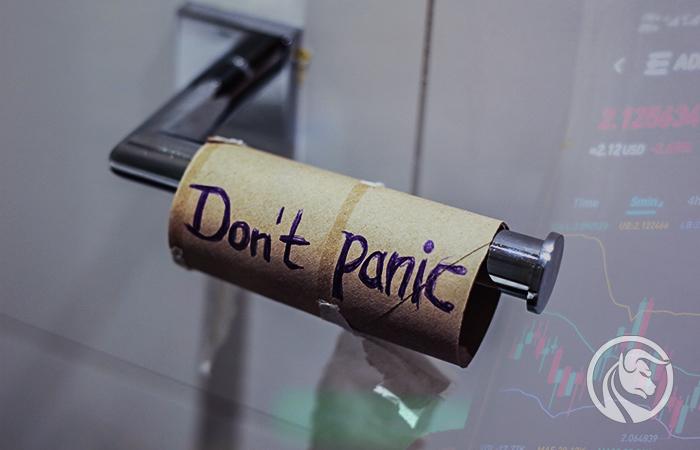FOMO - What is the fear of missing out and how to deal with it
Everyone is exposed to strong emotions. Many of them have a large impact on investment decisions. A very popular term has appeared in psychology: FOMO. It is short for fear of missing out and concerns the fear of missing out on an event, opportunity or experience. FOMO also occurs in investing. Some investors, while watching the opportunities that pass by their noses, feel sorry for missing the opportunity to make money. Sometimes this can lead to irrational decisions in the future. In today's article, we will take a closer look at the issue of FOMO in investing.
What is FOMO in investments?
FOMO in investing means investor's fear of missing out on a market opportunity. The trader is annoyed by situations when other market participants earn more money than him. The investor gets a particularly strong feeling of regret during a very strong price movement (up or down), which he expected, but does not participate in.
Sometimes the FOMO feeling does not come from being "out of the market" but from investing in other, less profitable assets. This was experienced by many investing their funds in shares when the bull market was raging kryptowalutach. Investors were "bombarded" with information about the next ones cryptomillionaires. It made me regret that "stayed on the platform". Some of the investors have decided to invest in this asset class, even without analyzing what exactly they are investing in.
Why is FOMO dangerous?
Psychology when making investment decisions is very important. This applies to both traders and long-term investors. When an investor experiences FOMO, they may be exposed to making mistakes that can have a significant negative impact on the rate of return on the investment portfolio.
CHECK: Trading psychology - everything you need to know
An investor who is under the influence of strong emotions may take a position inconsistent with his current philosophy. For example, investing in ETFs a broad market, which, seeing how growth companies grow by 50-100% per year, may want to join the prevailing trend. However, such an investor may not have enough knowledge to make the right selection of companies. As a result, it can buy overvalued companies whose valuation long ago discounted the success "many years ahead". When the market finally starts to bring valuations down to more realistic levels, a "late investor" can lose up to several dozen percent of the invested capital.
Another threat that FOMO can cause is looking for opportunities "by force". For example, an investor missed 4 companies that doubled in value in a month. Feeling that he has missed out on investment opportunities, he will spend hours on the Internet to find the next "gem". However, when one is under the influence of strong emotions, there are chances for the right selection of potential investments.
Particularly exposed to FOMO are day traders who, under the influence of emotions, may take too many positions with a poor reward to risk ratio.
What generates FOMO?
An investor may experience a fear of missing out when he is bombarded with information from the stock market all day long. Throughout the day, the media and social media platforms "inform" about important events regarding the markets, the stock exchange or the rates of return achieved by other investors. It is worth knowing where the "sources" of potential FOMO are. This will help minimize their impact in the future.
Investor community
Exchanging information with other investors can be "free university" when information is obtained from balanced professionals (not necessarily employed in financial institutions). However, very often on investment forums, Twitter, TikTok or other social media, people brag about the rates of return achieved (whether real or not).
When an investor earns an average of several percent per year (which is a very good result), he may feel bitter if an inexperienced investor boasted of earning hundreds of percent last year. The perfect example is Dogecoin. Cryptocurrency-meme has given many investors thousands of percent to earn. Social media has "enhanced" the popularity of this cryptocurrency even more.
Another problem is that for the inexperienced investor, the problem is to separate the nonsense about investing from the actual knowledge. A large number of published posts alone does not mean that a given social media participant has something reasonable to say.
Market news
If an investor uses investment portals, he is literally bombarded with information from the market. It doesn't matter that many of them are not significant in the perspective of the next year (who remembers what the PMI for industry in Germany was in July 2022). The media often presents trivial information as something almost epochal. This may make the investor want to participate in the next one "revolution in the economy" or another "signals of a big bear market". That is why it is so important to select market news for information noise and really relevant information.
Market volatility
Volatility can be both a great opportunity for an investor and a great threat. It all depends on which side of the market the trader will be on and what leverage he will have. Every day in the world, some companies gain in value by several percent and lose. It is impossible to always be where the greatest investment opportunity is. The investor must accept this and stick to his plan consistently. The worst thing he can do is buy a company that has grown significantly in the hope that it will also grow tomorrow.
Investment mania
Sometimes it happens that companies are popular on the market simply because they are "meme" or "popular". A great example are the situations that took place on the shares of GameStop or earlier on companies from the "marijuana industry". Investor mania (even if the growth was fundamental initially) can lead to stocks or other assets becoming ridiculously expensive. You can earn money on investor mania, but it's definitely hard when "everyone talks about it".
Investment celebrities
An investor can fall into FOMO by following life "celebrity investor". Such a celebrity uses social media or his own website to present his investment strategy. In addition, it shows how much he earned on a given transaction (not always showing a statement) and how he lives (luxury cars, expensive apartments). Seeing others getting rich quickly, a FOMO-sensitive investor may want to emulate a celebrity's investment strategy. Even if it is not suitable for him in terms of possessions, life situation and mental structure.
Often, such a celebrity investor "accidentally" informs about paid training courses to help novice investors become like him. It happens that the price significantly differs from the substantive value of the training.
How to deal with FOMO?
FOMO can have a devastating effect on the investor's psyche. However, this does not mean that we are defenseless and always fall into fear of missing out. There is an antidote that allows you to calm your moods.
#1. Always do the analysis
Contrary to appearances, also those investing their funds on the stock exchange do not always decide to carefully consider the pros and cons of taking a specific position. They often act impulsively and only after the transaction is made, the rationalization of the decision is made. Performing an analysis before making an investment decision may allow you to avoid taking a position only because of the strong emotions that the investor has.
Research is especially important for people who identify with long-term investing. Doing a proper analysis will help you avoid dangerous situations. An example of a dangerous situation is if an investor bought a stock just because it was going up. Without understanding what the company's business model looks like.
#2. Always stick to the plan
Too much focus on recent investment performance can leave you at risk of constantly comparing yourself to others. Regret for missed opportunities can cause a trader to abandon a profitable strategy simply because another trader generated a higher rate of return in the last month.
An investor should always know what his investment goal is and what is the means to that goal. The means is the right investment strategy that is tailored to the investor's psyche. If it is a person who needs a lot of time to take a position, then day-trading is not the best solution for him.
#3. Be patient
Patience is considered one of the virtues for a reason. Many long-term investors have squandered investment opportunities simply because they decided to switch to a good-quality company for another investment simply because the stock price underperformed for a month or two. Sometimes holding a position is the best investment idea. They know it, among others people buying Visa or Mastercard shares right after their debut.
#4. Less social media
Sometimes being quiet is the best way to distance yourself. It may be a good idea to significantly reduce your social media presence. Thanks to this, the investor will not be bombarded with information of low value and will have more time for family, friends or education.
Summation
In investing, a common affliction among investors is the fear of missing out on an investment opportunity. An investor affected by FOMO will feel bitterness seeing that an opportunity to make money has passed him by.
Strong emotions that torment the investor may cause him to invest funds in a venture or strategy that he made fun of until recently. A large "generator" of the FOMO feeling is social media, where the loudest are those who have earned. However, as the statistics of forex brokers show, most investors who invest under the influence of emotions lose their money. For this reason, it is so important to create an investment strategy that is tailored to the investor's predispositions.
"Better to lose an opportunity than money"






















![Forex Club – Tax 9 – Settle tax on a foreign broker [Download the Application] Forex Club - Tax 9](https://forexclub.pl/wp-content/uploads/2024/02/Forex-Club-Podatek-9-184x120.jpg?v=1709046278)
![Trading View platform – solutions tailored to the needs of traders [Review] trading view review](https://forexclub.pl/wp-content/uploads/2024/03/trading-view-recenzja-184x120.jpg?v=1709558918)
![How to connect your FP Markets account to the Trading View platform [Guide] fp markets trading view](https://forexclub.pl/wp-content/uploads/2024/02/fp-markets-trading-view-184x120.jpg?v=1708677291)
![How to invest in ChatGPT and AI? Stocks and ETFs [Guide] how to invest in chatgpt and artificial intelligence](https://forexclub.pl/wp-content/uploads/2023/02/jak-inwestowac-w-chatgpt-i-sztuczna-inteligencje-184x120.jpg?v=1676364263)




![Izabela Górecka – “Success on the market depends not only on knowledge, but also on emotional stability” [Interview] Izabela Górecka - interview](https://forexclub.pl/wp-content/uploads/2024/04/Izabela-Gorecka-wywiad-184x120.jpg?v=1713870578)
![WeWork – the anatomy of the collapse of a company valued at $47 billion [WeWork, part II] wework bankruptcy story](https://forexclub.pl/wp-content/uploads/2024/04/wework-bankructwo-historia-184x120.jpg?v=1711729561)
![Adam Neumann – the man who screwed up Softbank [WeWork, part AND] adam neumann wework](https://forexclub.pl/wp-content/uploads/2024/04/adam-neumann-wework-184x120.jpg?v=1711728724)




![The most common mistakes of a beginner trader - Mr Yogi [VIDEO] Scalping - The most common mistakes of a beginner trader - VIDEO](https://forexclub.pl/wp-content/uploads/2024/03/Scalping-Najczestsze-bledy-poczatkujacego-tradera-VIDEO-184x120.jpg?v=1711601376)
![Learning patience: No position is also a position - Mr Yogi [VIDEO] Scalping - Learning patience - No position is also a position - VIDEO](https://forexclub.pl/wp-content/uploads/2024/03/Scalping-Nauka-cierpliwosci-Brak-pozycji-to-tez-pozycja-VIDEO-184x120.jpg?v=1710999249)
![When to exit a position and how to minimize losses - Mr Yogi [VIDEO] Scalping - When to exit a position and how to minimize losses - VIDEO](https://forexclub.pl/wp-content/uploads/2024/03/Scalping-Kiedy-wyjsc-z-pozycji-i-jak-minimalizowac-straty-VIDEO-184x120.jpg?v=1710336731)




![Izabela Górecka – “Success on the market depends not only on knowledge, but also on emotional stability” [Interview] Izabela Górecka - interview](https://forexclub.pl/wp-content/uploads/2024/04/Izabela-Gorecka-wywiad-300x200.jpg?v=1713870578)
![Trading View platform – solutions tailored to the needs of traders [Review] trading view review](https://forexclub.pl/wp-content/uploads/2024/03/trading-view-recenzja-300x200.jpg?v=1709558918)













Leave a Response